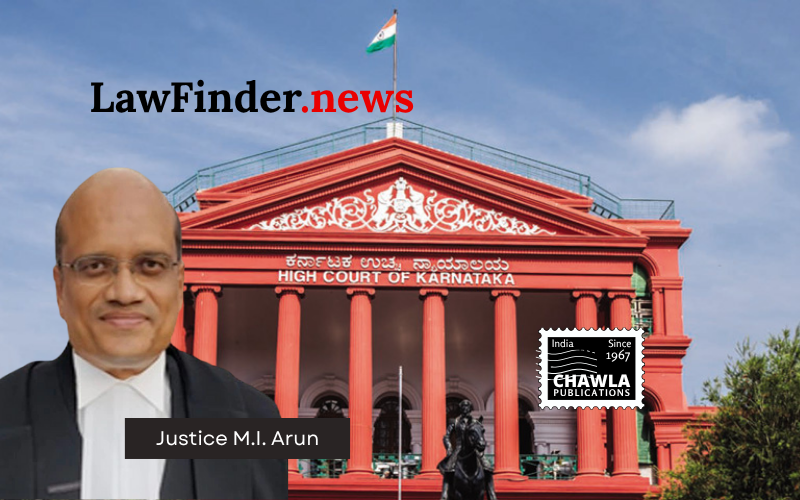Karnataka High Court Quashes Criminal Proceedings Against MP Dr. K. Sudhakar. Allegations of Bribery and Undue Influence Based on WhatsApp Messages Fail to Meet Legal Criteria
In a significant judgment delivered by the Karnataka High Court, criminal proceedings against Dr. K. Sudhakar, a Member of Parliament representing the Chikkaballapura Lok Sabha constituency, have been quashed. The court found that the allegations against Dr. Sudhakar, based solely on WhatsApp messages sent to an IAS officer, did not satisfy the legal criteria for offences under various sections of the Indian Penal Code and the Representation of People Act, 1951.
The proceedings were initiated following an income tax raid on the residence of Govindappa in Madavara Village, where unaccounted cash amounting to Rs. 4.8 crores was discovered. It was alleged that Dr. Sudhakar sent WhatsApp messages requesting help from an IAS officer, in relation to the raid. However, the Karnataka High Court, presided over by Mr. Justice M.I. Arun, concluded that there was no evidence linking Dr. Sudhakar to the seized cash or any intention of distributing the money for electoral influence.
The court meticulously analyzed the statutory provisions under Sections 171B (Bribery), 171C (Undue Influence at Elections), 511 (Attempt to Commit Offences), 171E, and 171F of the Indian Penal Code, and Section 123 of the Representation of People Act, 1951. It determined that the mere act of sending a WhatsApp message did not fulfill the necessary ingredients to constitute the alleged offences.
Justice Arun emphasized that the allegations did not demonstrate any attempt to exercise undue influence or bribery as defined under the relevant sections of the IPC. The absence of any direct evidence linking Dr. Sudhakar to the unaccounted funds or any electoral malpractice led the court to conclude that the proceedings amounted to undue harassment.
The judgment also noted the lack of evidence in the statement of CW2, the IAS officer, beyond the WhatsApp message, reinforcing the court’s decision to quash the proceedings. The trial court’s order taking cognizance of the offences was deemed legally unsustainable, thereby setting aside the charges against Dr. Sudhakar.
This ruling underscores the importance of solid evidence in criminal proceedings, especially in cases involving public figures and allegations of electoral malpractice. It highlights the judiciary's role in safeguarding individuals from unwarranted legal harassment when allegations do not meet statutory definitions.
Bottom Line:
Allegations against the petitioner based on WhatsApp messages to an IAS officer, in connection with an income tax raid, do not satisfy the ingredients of offences under Sections 171B, 171C, 511 of IPC and Section 123 of the Representation of People Act, 1951.
Statutory provision(s): Sections 171B, 171C, 171E, 171F, 511 of the Indian Penal Code, 1860; Section 123 of the Representation of People Act, 1951.
Dr.K. Sudhakar v. State of Karnataka, (Karnataka) : Law Finder Doc Id # 2787793




